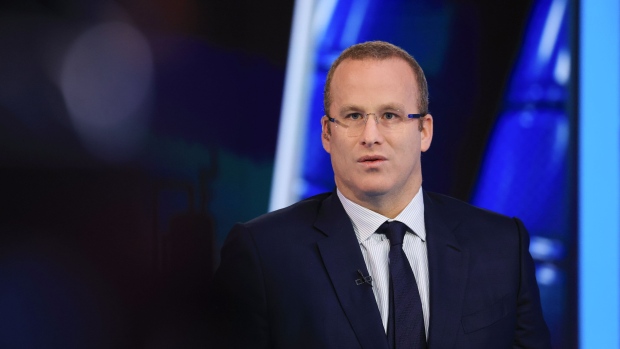Nov 22, 2023
Andurand Says OPEC+ May Need Deeper Cuts Amid US Supply Surge
, Bloomberg News

(Bloomberg) -- OPEC+ may need to announce deeper oil production cuts this weekend to offset surprisingly strong supply growth from the US and elsewhere, hedge fund manager Pierre Andurand said.
Saudi Arabia probably wants higher prices, and will press fellow OPEC+ members to join its recent output cutbacks, the renowned oil trader and founder of Andurand Capital Management said in an interview with Bloomberg television on Wednesday.
Riyadh may reverse its unilateral 1 million barrel-a-day curb — which its energy minister describes as a “lollipop” — if its counterparts don’t contribute further to the supply reductions, he said.
“The Saudis will probably want the other countries to cut as well” to support prices, Andurand said. “It’s going to be a negotiation where the Saudis will probably use that ‘lollipop’ as a potential stick if the other countries don’t cut more.”
When the Organization of Petroleum Exporting Countries and its allies hold their meeting this weekend, they will be looking at an increasingly bearish picture for oil prices. Crude is down 15% from its September peak to about $82 a barrel in London, defying expectations that production cuts would cause a rapid tightening in markets. The outlook for next year looks even weaker, with predictions of a first-half surplus if the cartel sticks to its current policies.
Andurand, famous for boldly bullish calls on commodities, said he’s been surprised this year by the expansion of American oil output, and the resilience in supplies from some members of OPEC+.
“Demand growth is very strong, despite all the fears of a really weak macroeconomic outlook,” the trader said. “Supply has been the issue, a lot more supply than expected.”
US oil output has increased this year by about 700,000 to 800,000 barrels a day more than initially expected, Andurand said. At the same time, Iranian supplies have recovered as the US relaxes its enforcement of sanctions, and Russian exports have held steady as Moscow flouts its OPEC+ commitments, he said.
As a result, the Saudis and their partners in the 23-nation alliance will likely need to unveil new measures when they gather on Sunday, he predicted. If OPEC+ nations don’t assist Riyadh, the kingdom may retaliate by restoring supplies and pressuring prices lower.
Still, such coordinated action may be difficult to arrange. Most OPEC+ members have seen their production capacity dwindle in recent years as a result of under-investment and political crises, and so have little scope to crimp vital export revenue by reducing supplies further.
Andurand said he’s scaled back expectations from earlier this year that oil prices will climb to $140 barrel, and doesn’t have a strong opinion on the outlook for crude markets next year, which right now is “finely balanced.”
(Updates with detail throughout.)
©2023 Bloomberg L.P.






